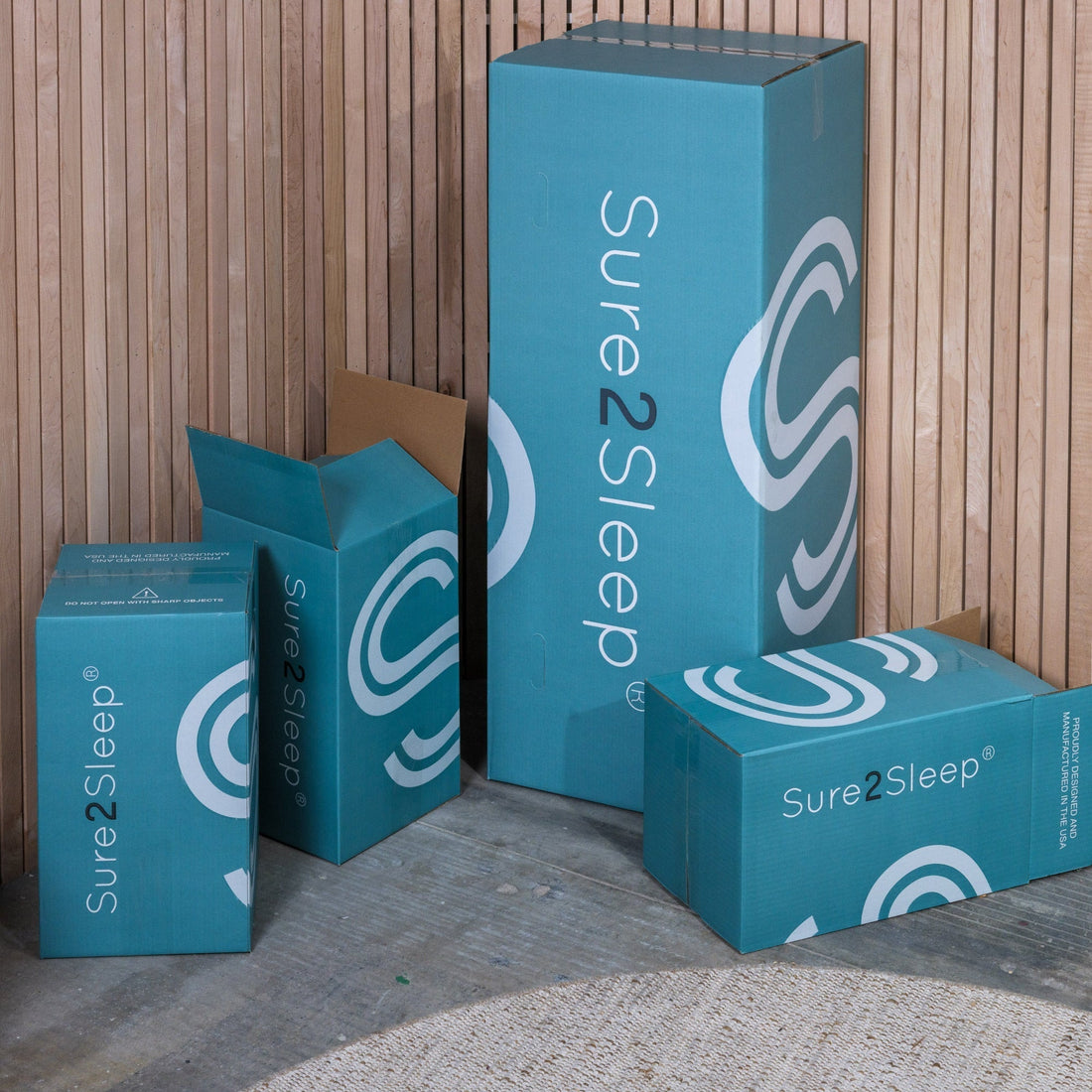
The Ultimate Guide to Picking the Right Mattress Size for You
Share
Overwhelmed by the amount of options when looking for a mattress? This informational guide will show you the differences between the sizes and give you tips on how you should make your decision.
Finding the perfect mattress is about more than just firmness and material. One of the most crucial decisions you’ll make is choosing the right mattress size. The size of your bed directly impacts your comfort, room setup, and even your sleep quality!
This guide unpacks everything you need to know about choosing the right mattress size, with helpful tips for new homeowners and growing families. We’ll also answer common questions and help you make a confident decision for your space and lifestyle.
Why Does The Size of Your Bed Matter?
Your ideal mattress size depends on several factors, including lifestyle, bedroom size, and sleep preferences. A mattress that's too small can leave you cramped, while a mattress that's too big might overwhelm your space. Additionally, as outlined by CNET's expert-vetted guide (source), the right size plays a big role in ensuring proper posture and restful sleep.

Standard Mattress Sizes Explained
Here’s a quick breakdown of standard mattress sizes to help you determine what fits your needs.
Twin (38" x 75")
- Best for: Kids transitioning from cribs or single adults in small bedrooms.
- Room size: Minimum 7 x 9 feet.
- Why it works: It’s compact, budget-friendly, and great for maximizing small spaces.
Twin XL (38" x 80")
- Best for: Single sleepers who need extra legroom (looking at you, dorm-dwellers and taller teens).
- Room size: Minimum 8 x 10 feet.
- Why it works: A Twin XL offers more length without taking up extra width.
Full (54" x 75")
- Best for: Young adults, single sleepers who like room to spread out, or couples who don’t mind snuggling up.
- Room size: Minimum 10 x 10 feet.
- Why it works: It’s larger than a Twin but still fits snugly into smaller bedrooms.
Queen (60" x 80")
- Best for: Couples or single sleepers who value extra sleeping space.
- Room size: Minimum 10 x 11 feet.
- Why it works: The most popular size, it balances comfort and affordability.
King (76" x 80")
- Best for: Couples with pets or kids sharing the bed, or anyone who loves extra space to sprawl.
- Room size: Minimum 12 x 12 feet.
- Why it works: A King-size bed is luxury personified, ideal for a spacious master bedroom.
California King (72" x 84")
- Best for: Tall couples or single sleepers with pets who sleep at their feet.
- Room size: Minimum 12 x 12 feet.
- Why it works: Longer but narrower than a standard King, it’s perfect for height without wasting width.
Factors to Consider When Choosing a Mattress Size
1. Room Dimensions
Measure your room before making a decision. Leave enough space for nightstands, dressers, and walking paths to keep the room functional and uncluttered.
2. Number of Sleepers
Are you sleeping solo, as a couple, or as a family with oversized cuddlers (kids or pets)? Make sure your mattress offers enough room to accommodate everyone comfortably.
3. Sleeping Preferences
Different sleeping positions have different space needs. For example, side sleepers may appreciate a wider mattress, whereas back sleepers can make do with less.
4. Budget
Larger mattresses cost more. From the initial purchase to accessories like bed frames and sheets, size impacts affordability. Balance your budget with your comfort needs.
5. Future Needs
This is especially important for growing families. A Queen may work for now, but if little ones frequently climb into bed, you might appreciate the extra space of a King.
Don’t Forget About Comfort!
Choosing the right size is just the beginning. A mattress also needs to support your spine, align your posture, and feel “just right.”
If you’re curious about a high-quality mattress that comes in every size, check out Sure2Sleep’s Monterey Mattress. Our fiberglass-free, durable, and comfortable models are a guaranteed crowd-pleaser for families and individuals alike.
What is the average lifespan of a mattress?
Depending on the material it's made out of, mattresses can last anywhere from 3-7 years. A high quality foam mattress with a supportive base layer can last up to 10+ years!
When should I replace my mattress?
You should replace your mattress once you notice visible signs of aging or after 7 years.
How can I extend the lifespan of my mattress?
You can extend the lifespan of your mattress through regular cleaning, rotation, and protection.

Hannah Lake
Sleeps on a mattress every night. Loves a foam pillow (emotional support pillow). Has been a student of the foam industry for years. Dedicated to getting a solid 6-8 hours of rest every night before writing about foam. Passionate about helping others do the same.


